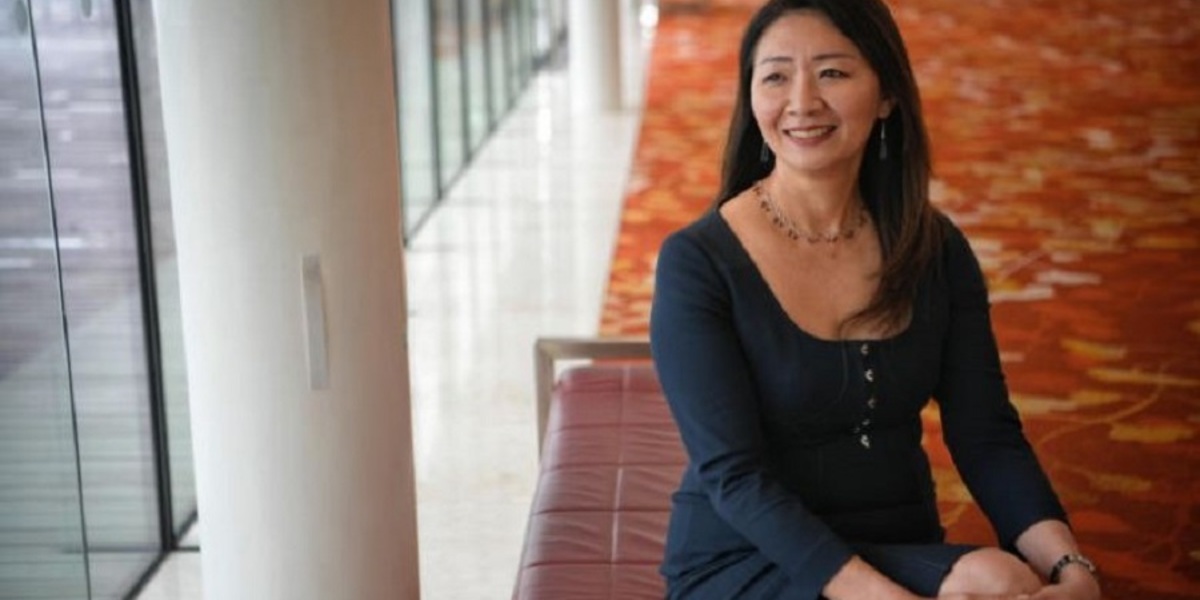
Supportive company and family helped woman with bipolar disorder become global head at Shell
SINGAPORE - In 2009, Ms Lyn Lee's father died suddenly of cancer, and her marriage of 18 years ended in divorce, leaving her to care for her two young daughters.
Under the pressure, she began displaying signs of mental health issues.
"I couldn't focus on work... like my mind was clouded... it just felt really heavy, cluttered, like I was dragging myself around," the 52-year-old, who was then a global manager at Royal Dutch Shell, said on Thursday (Oct 3).
"It came to a point in time where I just couldn't get out of bed."
Ms Lee was later diagnosed with bipolar II disorder, a mental health condition characterised by episodes of extreme mood swings.
Fortunately, thanks to a supportive family and workplace culture, she was able to seek treatment and begin the journey to recovery.
Her manager told her to take time to care for herself, and colleagues even offered to help her do her work.
"It's very important when you open up and speak about something that's so personal... that you have colleagues that are so supportive," she said.
Today, Ms Lee is Royal Dutch Shell's chief diversity and inclusion officer. She still sees a psychiatrist once every six months, and takes a low dose of medication nightly.
"Being mentally ill doesn't mean you can't be successful," she said.
She added that it is important to seek treatment for one's condition: "Many of us go through stress and live with depression and anxiety, but think it's normal. We're told to just get through it... but there's no such thing as 'just getting through it'. It'll just get worse unless you get attention (for your condition)."
Ms Lee added that a company's leadership plays an important role in creating an environment where employees have the chance to take time off to care for themselves, and where worker welfare is emphasised.
She said: "If I were in a different company where I felt like if I said something, I would lose my job, that would have been different... I probably would have continued to struggle.
"For a lot of people, even if they seek help, they can't talk about this and very soon they're called out as people who have a performance issue."
"You need... an environment where having time for yourself and recharging is not seen as a penalty," she added.
Ms Lee is one of the plenary speakers at the Together Against Stigma conference, held from Oct 3 to 5 at the Sands Expo & Convention Centre.
This is the first time the conference, which is in its ninth year, is being held in South-east Asia.
Organised by the Institute of Mental Health and the National Council of Social Service (NCSS), the conference brings together more than 500 delegates from 24 countries to discuss the issue of stigma against people with mental health conditions.
NCSS deputy chief executive officer Tina Hung said: "Persons with mental health conditions have a significantly lower quality of life than the general population... This is largely due to the stigma that is still prevalent in our society today."
During her opening remarks, President Halimah Yacob, who was the guest of honour, said: "In the old days people were afraid of lepers. Now people are afraid of those with mental health conditions. How sad can that be?
"These attitudes, coupled with misconceptions, make people with mental health conditions feel they are not accepted and respected by the people around them."
Calling for a multi-pronged approach to tackle mental health stigma here, Madam Halimah said there is a need to raise awareness of the issue through public education, while building the competencies of healthcare and social service providers.
She also emphasised the need for employers and co-workers alike to support those with mental health issues in the workplace.
"We must continue to build supportive work environments, where employees are encouraged to look after their mental health and are not afraid to seek treatment if they are unwell," she said.
Madam Halimah added: "The next time I join a conference of this nature, it won't be towards building an inclusive society - it will have another name, which shows that we've gone some way in achieving inclusivity and supporting those with mental health conditions."
Enjoyed this article let us know your thoughts comment below:
Blogs for you
Half the Sky's mission is to supply the tools that can give every woman the ability to build a successful career and be fully prepared for the future of work. So, that they can lead a healthy, prosperous and more balanced/blended lifestyle of their choosing. By building your confidence, you’re setting foundations to empower yourself and your career. The world is your oyster, and it starts with you.
Enjoyed this article let us know your thoughts in the comments below:
About half the sky
half the sky (HTS) is a career platform for women connecting you to career opportunities at companies that care. Providing you with information, tips and strategies to navigate the rapidly changing workplace.
Sign up to get career tips and job alerts directly to your inbox! Join us to shape the future of women at work together!



